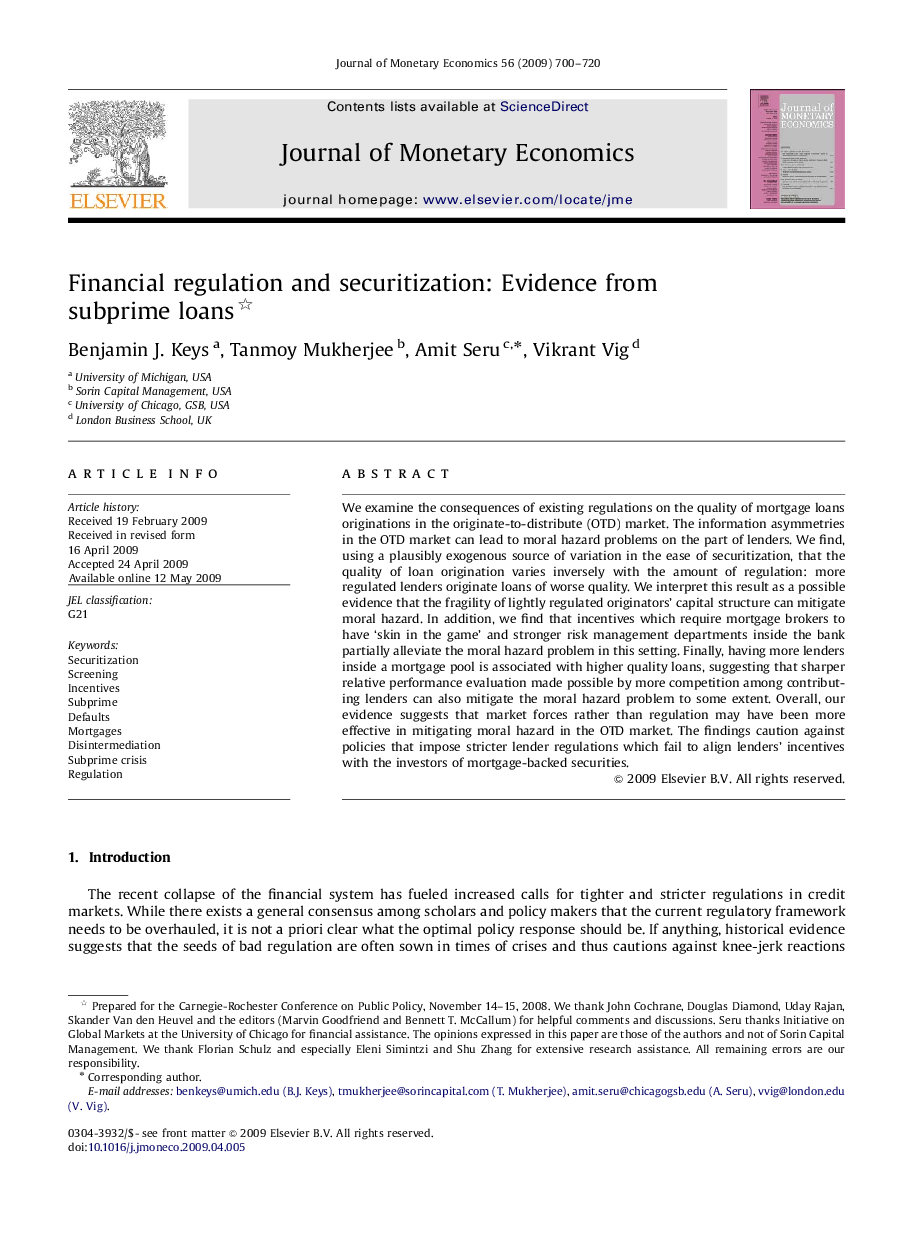| Article ID | Journal | Published Year | Pages | File Type |
|---|---|---|---|---|
| 967105 | Journal of Monetary Economics | 2009 | 21 Pages |
Abstract
We examine the consequences of existing regulations on the quality of mortgage loans originations in the originate-to-distribute (OTD) market. The information asymmetries in the OTD market can lead to moral hazard problems on the part of lenders. We find, using a plausibly exogenous source of variation in the ease of securitization, that the quality of loan origination varies inversely with the amount of regulation: more regulated lenders originate loans of worse quality. We interpret this result as a possible evidence that the fragility of lightly regulated originators' capital structure can mitigate moral hazard. In addition, we find that incentives which require mortgage brokers to have 'skin in the game' and stronger risk management departments inside the bank partially alleviate the moral hazard problem in this setting. Finally, having more lenders inside a mortgage pool is associated with higher quality loans, suggesting that sharper relative performance evaluation made possible by more competition among contributing lenders can also mitigate the moral hazard problem to some extent. Overall, our evidence suggests that market forces rather than regulation may have been more effective in mitigating moral hazard in the OTD market. The findings caution against policies that impose stricter lender regulations which fail to align lenders' incentives with the investors of mortgage-backed securities.
Keywords
Related Topics
Social Sciences and Humanities
Economics, Econometrics and Finance
Economics and Econometrics
Authors
Benjamin J. Keys, Tanmoy Mukherjee, Amit Seru, Vikrant Vig,
